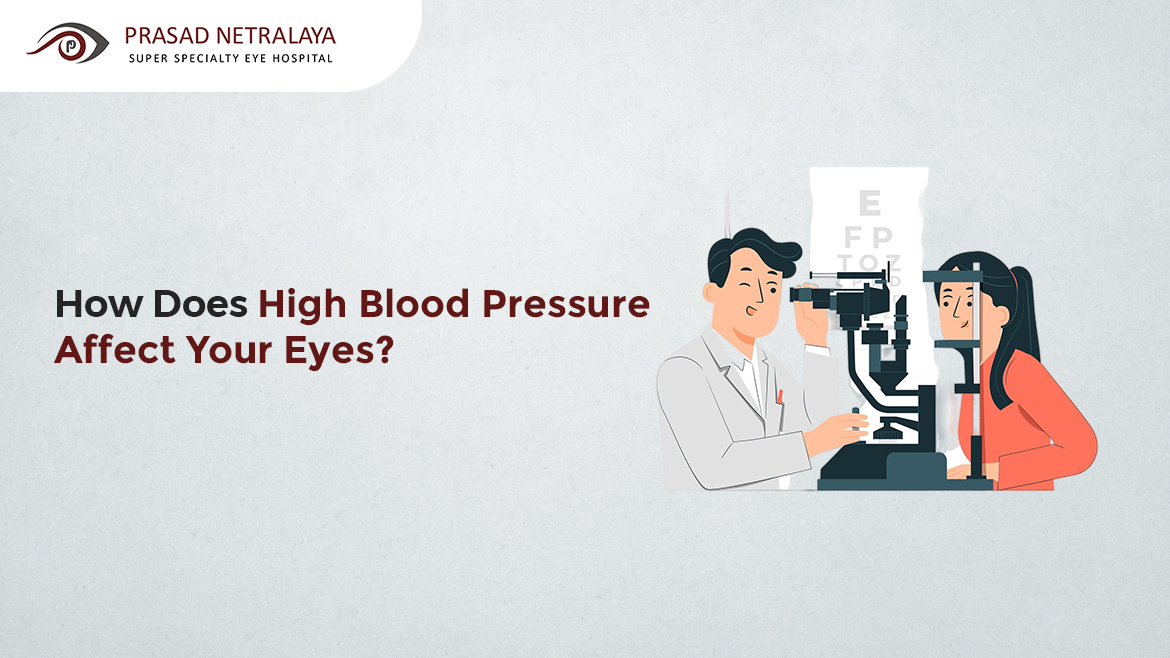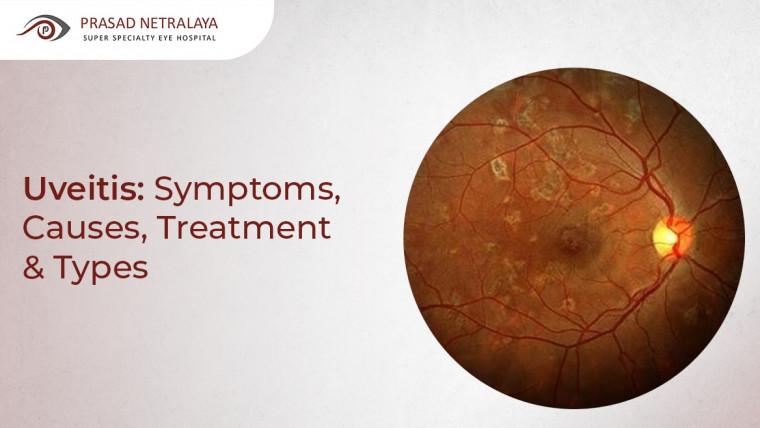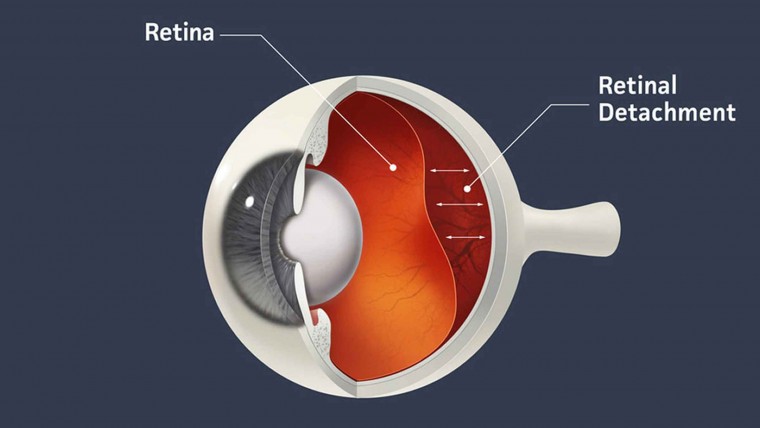Imagine waking up and finding your vision blurry and later discovering that this was the result of high blood pressure.
Hypertension/high blood pressure can make this happen by damaging the blood vessels in your eyes. While many are aware of its effects on the heart, kidneys and arteries, only very few realize the harm it can cause to the retina (the layer of the issue lying in the back of the eye, responsible for converting light into signals sent to the brain).
This damage can hence result in serious vision problems, highlighting the importance of checking and managing blood pressure to safeguard your eyesight.
Table of Contents
Common Effects:
High blood pressure can lead to several eye conditions, all of it collectively known as hypertensive retinopathy. This condition results from the damage in blood vessels of the retina due to extensive and high blood pressure.
- Blurred Vision: High blood pressure can potentially cause swelling in the optic nerve, leading to blurry and unclear vision
- Retinal Damage: Another common effect of retinopathy includes bleeding and fluid leakage in the retina, impairing vision adversely
- Choroidopathy: In this condition, there is a fluid formation under the retina, which can harm eye vision
- Optic Neuropathy: This can lead to reduced blood flow that further damages the optic nerve, resulting in vision loss
Treatment For Hypertensive retinopathy:
The best and most effective treatment for hypertensive retinopathy involves controlling and maintaining blood pressure.
Here are some tips and treatments:
Lifestyle Changes:
- Diet: Adopt a healthy, low sodium diet. Eat plenty of fruits, vegetables and whole grains
- Exercise: Consider exercising for about 150 minutes every week. Keeping a moderate intensity of the workout
- Stress Management: Start doing yoga, meditation and deep breathing exercises
- Limit Alcohol and Quit Smoking: Cut down on alcohol intake and stop smoking.
Medications:
- Antihypertensive drugs: As you consult a doctor, you may be prescribed to take medications like, ACE inhibitors, beta-blockers, and calcium channel blockers
- Constant Monitoring: Consistent monitoring of blood pressure and regular check ups are crucial.
When to Seek Emergency Medical Attention
Contact your ophthalmologist immediately if you tend to have high blood pressure along with vision changes or headaches.
Hypertension’s Effect on Cataract Surgery:
For individuals who are going to undergo cataract surgery and are also victims of high blood pressure, they require special attention to ensure the surgery is carried out without any complications like bleeding during the surgery or swelling of the eye after the surgery.
Considerations/ Precautions:
- Pre-surgery Evaluation: Ensure your ophthalmologist conducts a thorough examination to check your blood pressure levels along with your eye health before getting the surgery done.
- Surgical risks: Be aware that high blood pressure during surgeries can cause complications like excessive bleeding or swelling after the surgery. Follow their advice to manage blood pressure before and after getting the surgery done.
Precautions After Cataract Surgery:
There are certain precautions to consider after undergoing the surgery especially for those with high blood pressure:
- Monitor Blood Pressure: Regularly monitor your blood pressure and keep it within the healthy range as per your doctor’s recommendations
- Avoid tough activities: Refrain from heaving lifting, bending over or doing any activity that involves exerting pressure on your eyes.
- Take Prescribed medicines: Use eye drops and any other medications to prevent infection or inflammation from developing
- Protect your eyes: Consider wearing glasses or eye shield to protect your eyes from dust and exposure to light. Also, avoid rubbing your eyes.
- Visit your doctor for follow ups: Attend the follow up appointments to address any issues and to monitor the recovery process.
Also Read : What happens to your eyes if you have diabetes?
Clear Your Eyes and Mind From Hypertension with Prasad Netralaya’s Eye Specialists
High blood pressure can be a major threat to your eye health if not monitored at the right time. It’s crucial to manage your blood pressure through lifestyle changes and medication consumption to protect your eye health. Regular check-ups can also prove effective in preventing major conditions from developing.
Prasad Netralaya Hospital is home to a team of highly skilled ophthalmologists who specialize in treating minor to major eye conditions, even those related to high blood pressure. So, if you’re experiencing any symptoms or need guidance on managing blood pressure and its effects on the eyes or cataract surgery, then you must consider opting for Prasad Netralaya Hospital.
Schedule an appointment today and let our specialists help you protect your vision today and for the days to come!
FAQs
1. What symptoms can high blood pressure cause in the eyes?
High blood pressure can cause hypertensive retinopathy. The symptoms of this disease don’t usually appear until it has progressed significantly. However, when the symptoms do appear, they may include double vision, dim vision or complete vision loss
2. Can high BP cause vision problems
High blood pressure can lead to blindness or cause eye disease besides other heart and kidney diseases. It can potentially damage the retina, resulting in an eye disease called as hypertensive retinopathy
3. Is cataract related to high blood pressure?
Just as high blood pressure increases the risk of having hypertensive retinopathy, it can also pose risks of cataracts.
4. Does blood pressure go up after cataract surgery?
Blood pressure doesn’t usually increase after cataract surgery, if it does, it could be purely coincidental. However, it’s always better to keep it in check before and after getting the surgery done, to avoid major complications.
Dr. Vikram Jain, M.S. had his medical training (MBBS) from Kasturba Medical College, Mangalore, India. He did his master’s in Ophthalmic surgery from Kasturba Medical College, Manipal. He currently manages the Glaucoma department of Prasad Netralaya hospital.



